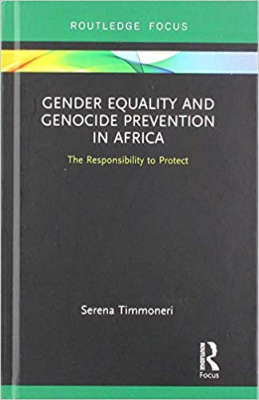Why does genocide occur?

This week marks 25 years since the start of the Rwandan genocide, during which as many as a million people were killed in only 100 days. Since then, academics and diplomats have tried to formulate an early warning system allowing the international community to predict incipient genocide. They are partly motivated by the laudable desire to avoid human suffering. However, more pragmatically, its costs the UN much less to stop mass atrocities before they begin, rather than rebuilding in the wake of conflict. If you think peacekeeping missions are expensive, then wait until you see how much it will cost to rebuild Syria.
The stages leading up to ethnic cleansing have been categorised, most usefully by Professor Gregory Stanton at Genocide Watch. He includes the classification of an ethnic or religious group, pointing out that the minority is somehow 'different' - the attaching of symbols (such as the Nazi's yellow star which Jews were forced to wear); the prevalence of hate speech promoting exclusionary ideology; dehumanisation; discriminatory laws; polarisation, splitting society into different groups; the mobilisation of nationalist militias; persecution; extermination; and then denial that the genocide ever happened.
A new study, Gender Equality and Genocide Prevention in Africa, by Serena Timmoneri (Routledge) is an attempt to add another dimension: gender. The author suggests that societies in which women have low status are more likely to also produce genocide. Mercifully, she spares us the usual delusional nonsense about women being more peace-loving than men. Instead, she looks at the correlation between factors such as high maternal mortality, women's inability to inherit under customary law, harmful traditions such as FGM, and polygamy.
The book provides a spirit-crushing catalogue of all the ways in which women's and girls' lives are made miserable by ingrained social customs in five African countries. However, it does not make a related but important point - that more equal societies tend to be more prosperous, and the more prosperous a nation is, the less likely it is that there will be internal conflict. Countries in which women have more rights tend to be wealthier. Yet, history shows us that it is not the relative wealth of a country that is relevant to its stability. What can trigger genocide is often the abrupt decline in living standards, as in Weimar Germany, or Yugoslavia at the end of communism, or Rwanda when the global price of coffee collapsed.
The United Nations' response to its gross failure over Rwanda and Bosnia was the Responsibility to Protect Doctrine, known as R2P. This was, in theory, suppose to override state sovereignty as enshrined in the Treaty of Westfalia in 1648. It put a duty on nations to protect their own citizens from mass atrocities, and if those governments failed to do so, it imposed that duty on the international community in general.
Paradoxically, the UN Security Council celebrated the passing of R2P in 2005, just as it was ignoring the genocide in Darfur. The magic ingredients - enforcement and consequences for breaching the doctrine- were missing, and have rendered R2P as toothless as the International Criminal Court (another excellent idea that has run into the sand).
As we survey the devastation in Syria, Yemen, and the misery of the Rohingya refugees, it is safe to conclude that the Treaty of Westfalia still has the upper hand.
Gender Equality and Genocide Prevention in Africa, by Serena Timmoneri in published by Routledge.


















